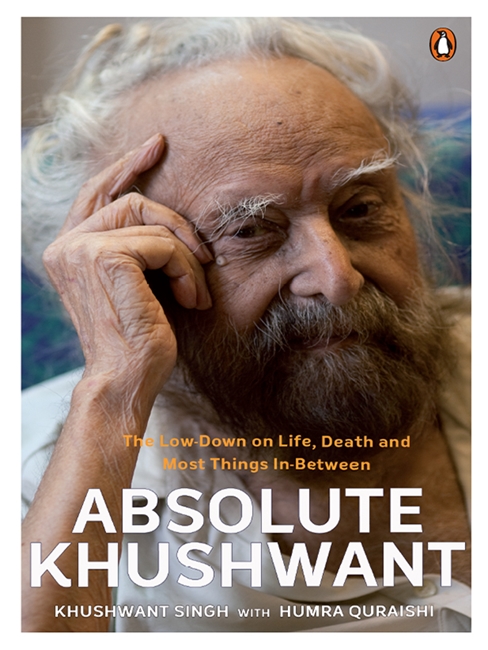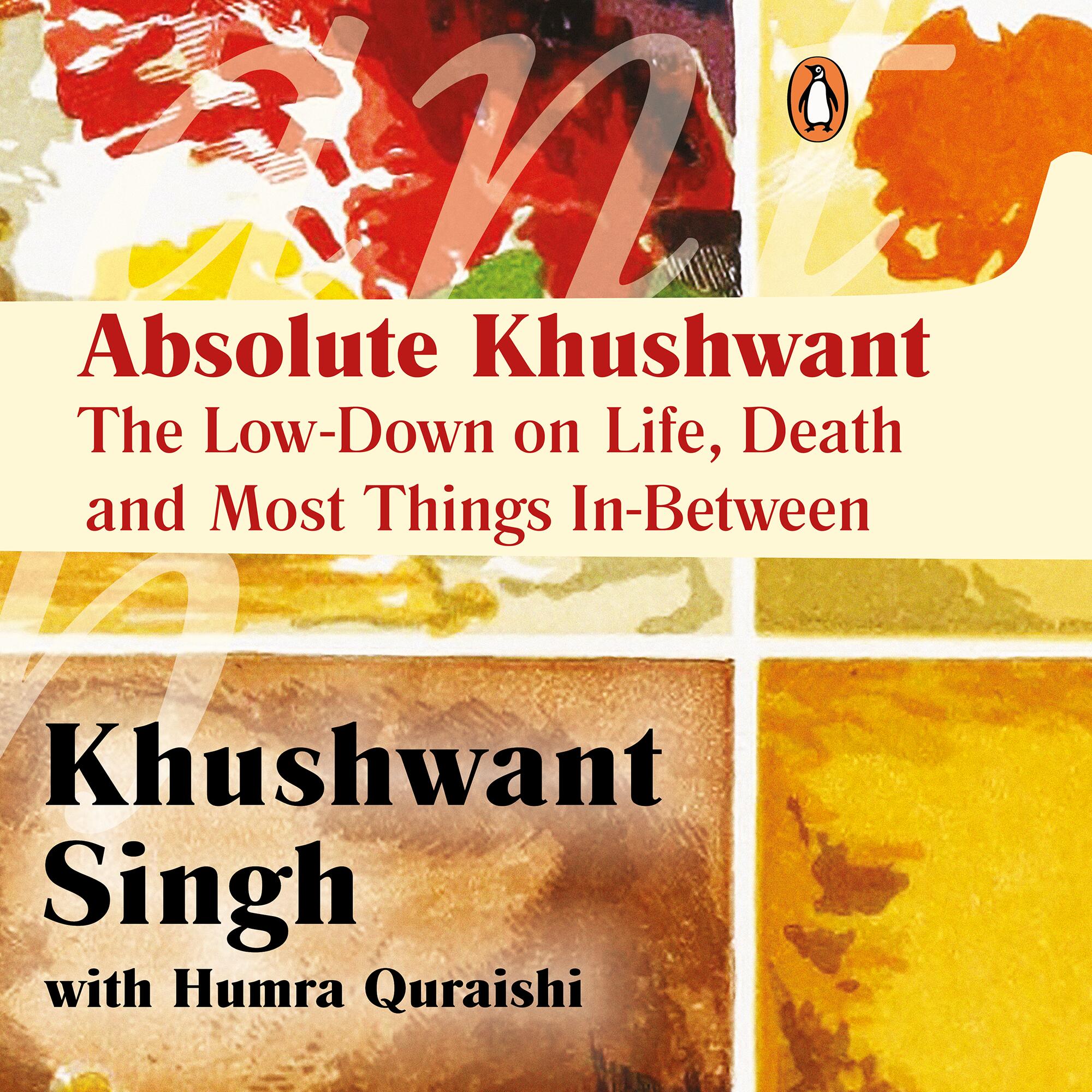
© 2020 Penguin India


I would like to be remembered as someone who made people smile.’ One of the great icons of our time, Khushwant Singh, 95, is a man of contradictions. An agnostic who’s well-versed in the holy scriptures; a vocal champion of free speech who supported the Emergency; a ‘dirty old man’ who sees ‘the world in a grain of sand and beauty in a wild flower’. Born in 1915 in pre-Partition Punjab, Khushwant Singh has been witness to almost all the major events in modern Indian history and has known most of the figures who have shaped it. In a career spanning over six decades as writer, editor and journalist, his views have been provocative and controversial, but they have also been profound, deeply perceptive and always compelling. Khushwant Singh has never been less than honest. In Absolute Khushwant, India’s grand old man of letters tells us about his life, his loves and his work. He writes on happiness, faith and honesty. And, for the first time, about his successes and failures, his strengths and weaknesses, his highs and lows. He tells us what makes him tick and the secret of his longevity; he confesses his deepest fears and what he holds dear. He writes about sex, marriage, worship and death; the people he’s admired and detested. With personal anecdotes and rare photographs, Absolute Khushwant is uncompromising, moving, and straight from the heart.
Imprint: India Penguin
Published: Feb/2019
ISBN: 9780143068716
Length : 212 Pages
MRP : ₹250.00
Imprint: Penguin Audio
Published: Oct/2019
ISBN: 9780143499053
Run time : 600 mins
Imprint: India Penguin
Published: Feb/2019
ISBN: 9788184752786
Length : 212 Pages
MRP : ₹250.00
I would like to be remembered as someone who made people smile.’ One of the great icons of our time, Khushwant Singh, 95, is a man of contradictions. An agnostic who’s well-versed in the holy scriptures; a vocal champion of free speech who supported the Emergency; a ‘dirty old man’ who sees ‘the world in a grain of sand and beauty in a wild flower’. Born in 1915 in pre-Partition Punjab, Khushwant Singh has been witness to almost all the major events in modern Indian history and has known most of the figures who have shaped it. In a career spanning over six decades as writer, editor and journalist, his views have been provocative and controversial, but they have also been profound, deeply perceptive and always compelling. Khushwant Singh has never been less than honest. In Absolute Khushwant, India’s grand old man of letters tells us about his life, his loves and his work. He writes on happiness, faith and honesty. And, for the first time, about his successes and failures, his strengths and weaknesses, his highs and lows. He tells us what makes him tick and the secret of his longevity; he confesses his deepest fears and what he holds dear. He writes about sex, marriage, worship and death; the people he’s admired and detested. With personal anecdotes and rare photographs, Absolute Khushwant is uncompromising, moving, and straight from the heart.
Khushwant Singh was India’s best-known writer and columnist. He was founder-editor of Yojana and editor of the Illustrated Weekly of India, the National Herald and Hindustan Times. He is the author of classics such as Train to Pakistan, I shall Not Hear the Nightingale (retitled as The Lost Victory) and Delhi. His non-fiction includes the classic two-volume A History of the Sikhs, a number of translations and works on Sikh religion and culture, Delhi, nature, current affairs and Urdu poetry. In 2007, he was awarded the Padma Vibhushan. Among the other awards he has received are the Punjab Ratan, the Sulabh International award for the most honest Indian of the year, and honorary doctorates from several universities. He passed away in 2014 at the age of ninety-nine.
Humra Quraishi is a freelance reporter and columnist based in Delhi. Her features and interviews appear in the Times of India, the Hindustan Times, the Indian Express, the Statesman, Pioneer and Tribune. Since 1990 she has been visiting Jammu and Kashmir regularly to report on the turmoil there and the effect it has had on the lives of the Kashmiri people.